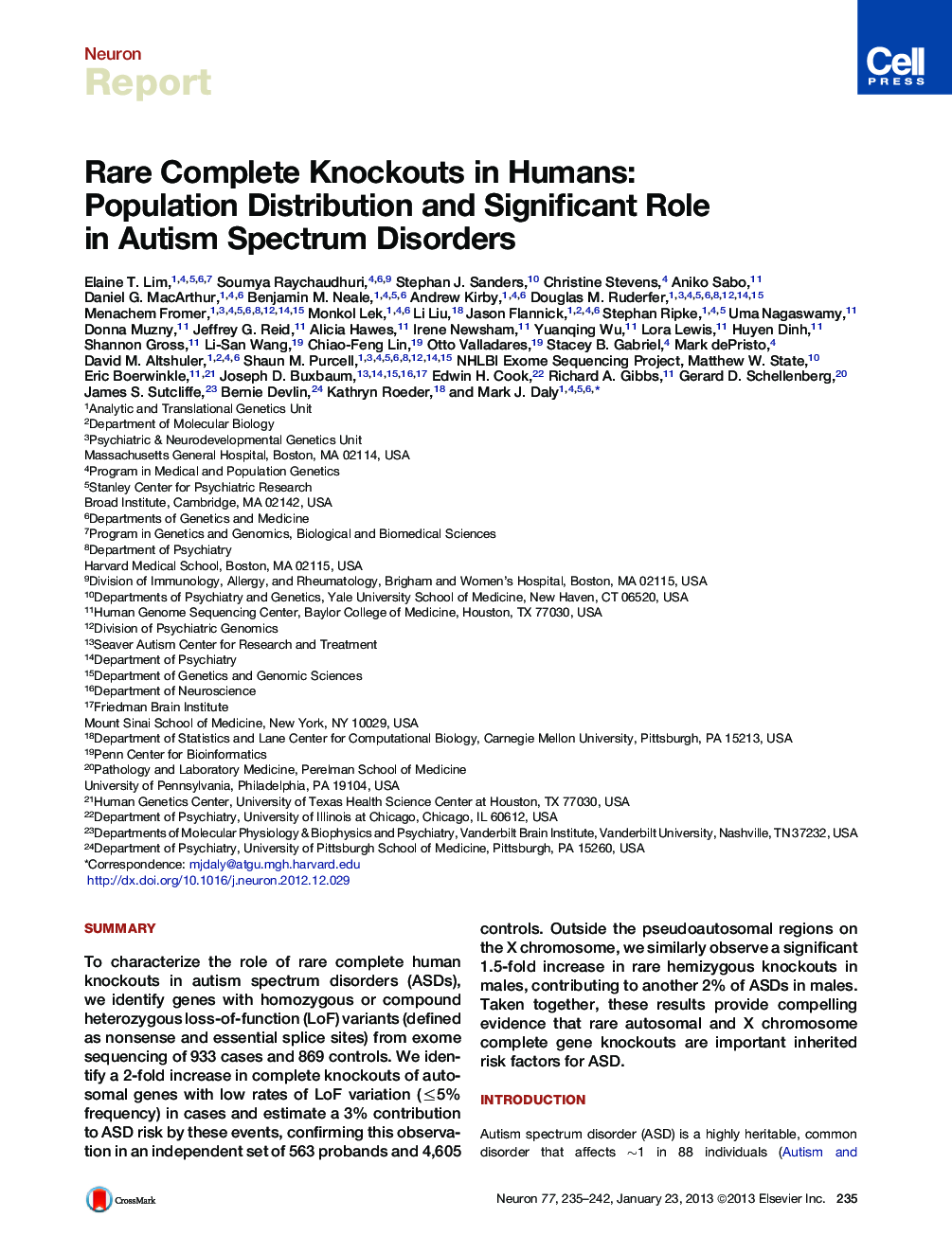| Article ID | Journal | Published Year | Pages | File Type |
|---|---|---|---|---|
| 4321173 | Neuron | 2013 | 8 Pages |
SummaryTo characterize the role of rare complete human knockouts in autism spectrum disorders (ASDs), we identify genes with homozygous or compound heterozygous loss-of-function (LoF) variants (defined as nonsense and essential splice sites) from exome sequencing of 933 cases and 869 controls. We identify a 2-fold increase in complete knockouts of autosomal genes with low rates of LoF variation (≤5% frequency) in cases and estimate a 3% contribution to ASD risk by these events, confirming this observation in an independent set of 563 probands and 4,605 controls. Outside the pseudoautosomal regions on the X chromosome, we similarly observe a significant 1.5-fold increase in rare hemizygous knockouts in males, contributing to another 2% of ASDs in males. Taken together, these results provide compelling evidence that rare autosomal and X chromosome complete gene knockouts are important inherited risk factors for ASD.
► Excess of rare complete knockouts provides support for inherited component in ASD ► Estimate a 3% contribution to ASD risk for rare autosomal complete knockouts ► A further 2% contribution to ASD risk in males from X-linked complete knockouts ► Discovered ASD candidate genes from screen of rare human knockouts
